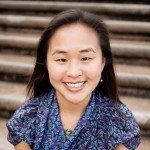
Jocelyn Sze
Private Practice
Clinical Psychology
Dr. Jocelyn Sze is a licensed psychologist who provides psychotherapy for adult individuals and couples at her practice in San Francisco using primarily a cognitive behavioral therapy (CBT) approach, with several areas of specialization. Click here to read more about Dr. Sze.
What drew you to the field of psychology and your current interests (e.g., Asian American issues, cognitive behavioral therapy, technology-assisted therapy)?
The questions of psychology are the questions that light me up. “What makes people tick?” “How does culture affect our experience of the world?” “How does the mind fall ill?” These questions pull at me, and psychology has been my way of following my bliss. That’s the short answer.
The long answer is that while the questions of psychology are the ones that most compel me, it was a long and windy road to realize that. In truth, “Psychology” and “Mental Health” held a stigma for me, often implicit, and particularly within my Asian American community. In college, I spent the first couple years pursuing “practical” studies in economics and political science, avoiding psychology classes but participating as a research assistant in Jeanne Tsai’s Culture and Emotion lab at Stanford “just for fun”. That research assistantship was one of many little steps towards following my bliss in the face of opposing forces—people, including myself, who believed that the study of mental illness was too “soft”, impractical, and in some ways still a taboo subject. As I immersed myself further in psychology, I realized increasingly how important this field is, and particularly for Asian Americans like myself to enter the field and begin to demystify it, break down stigma, and increase mental health access to Asian Americans and other under-served populations. My draw towards cognitive-behavioral therapy (CBT) was motivated by a similar process. I love that CBT is transparent, collaborative, structured, and science-based, factors that appeal to me and many other Asian Americans. My interest in technology-assisted interventions is primarily motivated by the power of technology to reduce barriers to care among under-served populations.
A doctoral degree in clinical psychology can lead to a number of different careers. Can you tell us about how you chose your current career path?
My parents both have science backgrounds and I was taught at an early age to base my knowledge on observational data, to test my own hypotheses, and to stay curious and questioning. In pursuing a doctorate in clinical psychology, my intent was to become an academic. Midway through my doctoral program at UC Berkeley, I fell in love with the hands-on clinical work. It sounds cheesy, but it truly broke open a part of my heart in a way that the data and the science, while exciting, just didn’t. After completing an internship and postdoctoral fellowship at the San Francisco VA, I decided to open up a private practice and do some supervision and consulting on the side. With two little kids, the flexibility of being my own boss and calling my own hours is a huge plus.
I also love that a doctorate in clinical psychology opens the door up to a varied and evolving career. While private practice is a wonderful fit for me now, I’m not sure it will be a forever fit. It’s exciting to me that I don’t know how the rest of my career will unfold, and that I have the autonomy and freedom to pursue my passions in various areas (clinical work, supervision, teaching, research, writing, technology) in different ways over the course of my lifespan. Some of my mentors are starting to retire now, and it’s such an inspiration to see how they are “retiring”: spending time in Tanzania to build mental health clinics; conducting research in China; keeping a one-day private practice and then spending more time with the grandkids. The lovely diversity of these paths reinforces my gratitude for the degree and training I have.
As you think back to your undergraduate days, what were some experiences that were helpful in bringing you to where you are today?
Working as a research assistant at a lab and conducting my own study for a thesis were probably the most helpful experiences. I also volunteered at a suicide hotline, which gave me additional hands-on experience with the field. Another factor that shaped where I am today was simply location. Having grown up in an area with very few Asian Americans, it was a complete culture shock to be at Stanford and no longer be in the minority. This change brought certain questions related to culture, ethnicity, and identity to the forefront of my mind.
How do you think we can get more Asian Americans interested in psychology, starting at the undergraduate level?
I think the work the AAPA is doing to get more Asian Americans interested in psychology is so important. And its expansion over the years is surely a reflection of a strong growing interest. The AAPA organizes conventions, publishes journals and newsletters, leverages social media, pushes for policy changes, and spearheads a number of other activities to advance Asian American psychology. The more Asian Americans we can get involved in AAPA, starting with the undergraduate level, the greater the ripple effect.
What advice would you give any undergraduates who are thinking about majoring in psychology, or pursuing graduate school in psychology.
The classroom is often where undergraduates first begin to learn about psychology. I’m so grateful for the opportunities I had to take classes in Asian American psychology and cultural psych in particular. My main advice though would be to seek out as many opportunities to connect with psychology outside of the classroom as you can. Connect with a larger community by joining the AAPA or Psi Chi, volunteer at a research lab or a counseling center, connect with professors at office hours, run your own study. A doctoral program in psychology is a long haul, so getting hands-on experience before you commit to that path is important.
